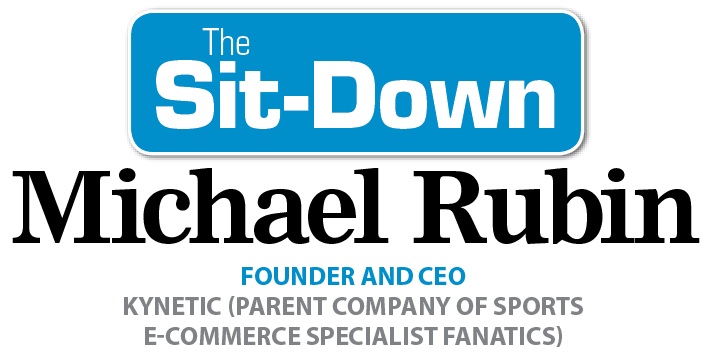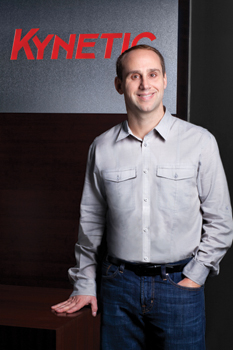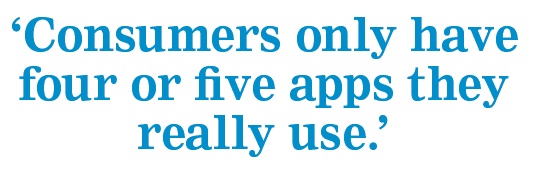
Online retail leader discusses becoming a household brand, the focus on mobile and what he’s learned from being a minority team owner.
O ver the next couple of decades, brick and mortar retail will be flat. Growth is going to come from e-commerce.
Now, e-commerce is 12 to 15 percent of all retail. I see that going to 33 percent within a decade. Within licensed sports, it could be as much as 50 percent.
 |
Photo by: BRIAN MICHAEL LAUER / BML PHOTO
|
The
Internet has been destructive to many merchandise categories. In licensed sports, it’s grown the industry, because we’re able to serve all the displaced fans with an enormous inventory.
This is an inventory and warehouse business. Today, we own $600 million worth of inventory at retail in 1.5 million square feet of space. That makes it an incredibly complex inventory business, which means it’s a really hard business for [brick and mortar] stores to do well — the inventory is too complex.
We carry more than a million SKUs of product today. That’s more than my old company [GSI Commerce] did across a lot many more product categories.
Annually, we spend more than $50 million in marketing, in addition to what we pay the leagues. We’ll adjust that to where we are spending nine figures in marketing pretty quickly. Within a couple of years, Fanatics will be a household brand among sports fans.
We’re a billion-dollar retailer of licensed sports merchandise, which makes us the largest, so gaining share is nice, but more important for us now is growing the whole industry.
We think sports licensed can be a $3 billion to $5 billion U.S. business over the next decade and a [overall] global business of $5 billion to $10 billion.
As far as physical merchandise categories, licensed sports will have the most penetration from e-commerce. There are tens of millions of Americans buying licensed sports merchandise. I want us to have a direct relationship with all of them. I want to personalize their experience and then I will know how to best satisfy their needs.
There’s so much emotion that goes into sports. Mobile [commerce] is a perfect way to tap into that, because you can capture someone in the heat of the moment. I don’t think we are far away from doing something on our sites to capture traffic and sales every time there’s a memorable play. It doesn’t work on a desktop, but it works from a mobile perspective.
Sports overindexes for mobile consumption of content, so that should pull along the opportunities for mobile commerce and licensed sports. We’re focused enough on mobile that we should have close to 50 full-time people working on that by year’s end. We have to innovate there.
Consumers only have four or five apps they really use, so an individual [e-commerce] app per league won’t work. So we need to invest in an app that serves fans’ overall needs and market that aggressively, so that every fan is using it.
I can see a time soon when a fan in a championship arena can get championship merchandise delivered the next day with a few clicks.
Starting around age 7 or 8, I was selling things: baseball cards or vegetable seeds or stationery door-to-door. I had people shoveling snow from driveways when I was young and I would sell their services.
I only had one boss in my life. I worked at The Gap when I was 14, because I lied about my age. The [retail ski shop he had opened] was doing so well, I told them how old I was and they sent me home that day.
I had my first real retail store when I was 14, but I never really looked at it as a way to make money as much it was a way to further my passions for skiing and business.
The only two places fans should buy merchandise are at the venue and online. I do have a lot of respect for Dick’s Sporting Goods — they have great stores offering a great experience. Among brick-and-mortar stores, companies like Dick’s will gain share, as that total brick-and-mortar sporting goods market shrinks.
Luxury is a very big opportunity for us. We also have a very big initiative in sports memorabilia which we think will change an industry that needs to be changed. There are a lot of authenticity issues we need to fix, and then that business can thrive again.
Amazon is the Wal-Mart of the Web. Sports licensed is a category where brands of manufacturers, teams and leagues really matter. Amazon doesn’t create an environment that satisfies the need of a good brand in any way, shape or form. If I’m buying commodity products I look at Wal-Mart and Amazon as great places to shop.
The Sixers [minority] ownership has given me new and different ways to look at the sports industry. It’s a glamorous business from the outside looking in, but from the inside, it is a lot smaller business than most people think. That means getting the best talent to run it is more important in sports than almost any other businesses.
I spend 20 to 25 percent of my time every week interviewing job candidates, which surprises most people. You look for relevant experience, a track record, cultural fit. I have never asked one of them for references. You get great information for your own back-door references; you get nothing from front-door references.






